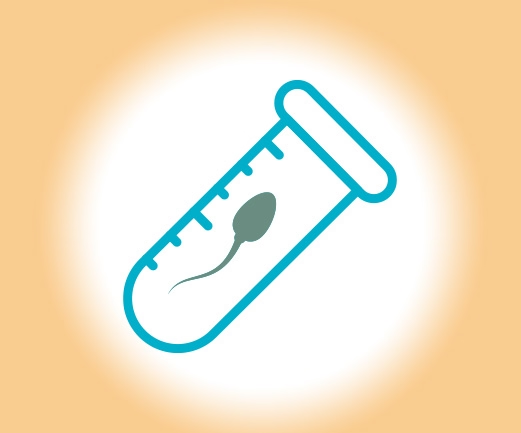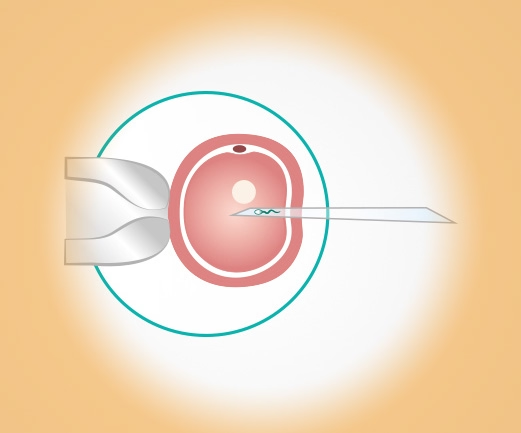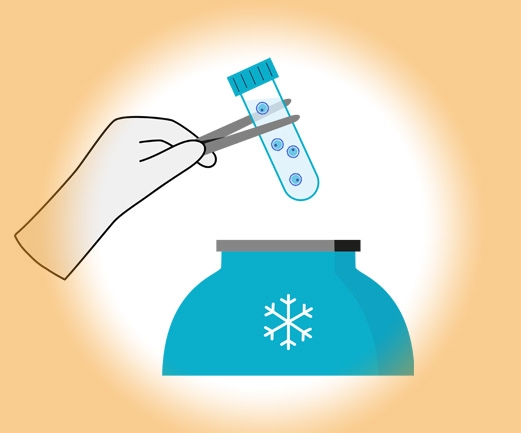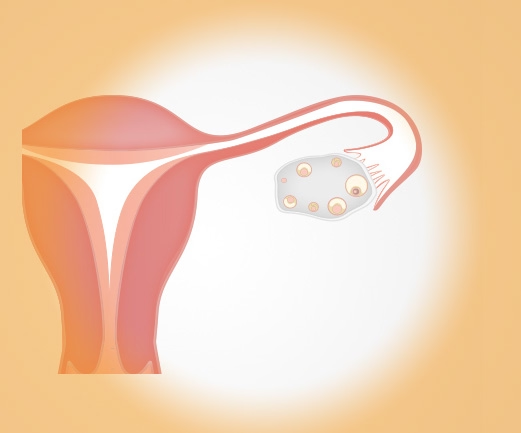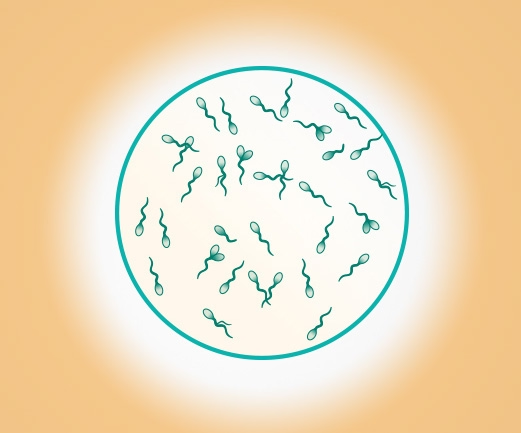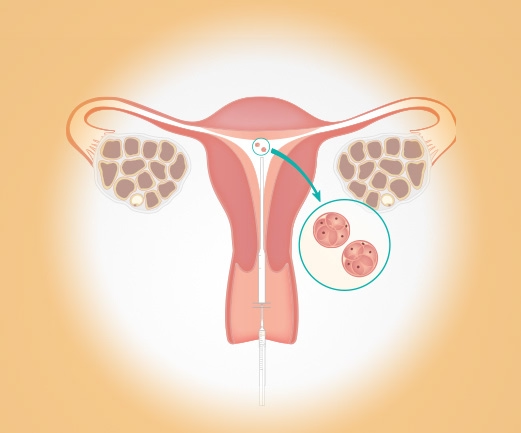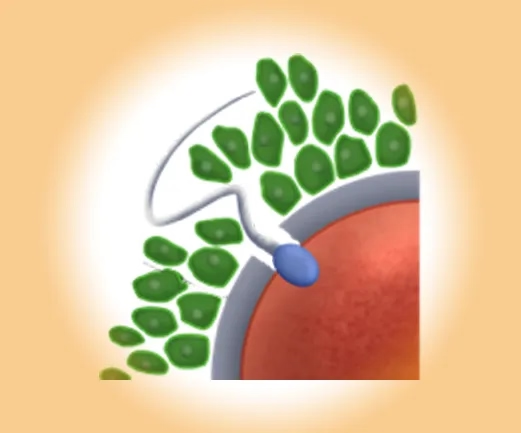Female infertility: understanding causes, finding hope
When conception doesn’t happen—medical clarity and emotional guidance
Infertility can be an emotionally overwhelming experience. The question “Why am I not getting pregnant?” often comes with growing uncertainty, stress, and self-doubt. At Kinderwunschzentrum Dresden, we understand these emotions. In this guide, we offer clear, medically accurate insights into the most common causes of female infertility—and how modern reproductive medicine can help you build the family you dream of.
What Does Female Infertility Mean?
Medically defined, compassionately explained
Female infertility is medically defined as the inability to conceive after 12 months of regular, unprotected sexual intercourse (or after 6 months if you're over 35). But infertility isn’t a final verdict—it simply means that natural conception may require medical support.
🔬 According to the German IVF Registry (DIR), 10–15% of all couples of reproductive age face fertility issues—many due to female factors.
Signs of Female Infertility
What should I watch out for?
Many women wonder: “How do I know if I might be infertile?” The following symptoms can suggest reduced fertility:
- Irregular or absent menstrual cycles
- Extremely heavy or very light bleeding
- Hormonal changes (e.g. acne, hair thinning, excess hair growth)
- Pain during intercourse or menstruation
- Unexplained weight fluctuations
- Past infections (especially chlamydia)
- No pregnancy despite regular unprotected sex
While these signs are not always conclusive, a fertility check-up provides the clarity you deserve.
What Causes Female Infertility?
Multifactorial—but treatable
In most cases, infertility is not caused by a single factor—but by a combination of underlying conditions. The most common causes include:
1. Hormonal Imbalances
Hormonal issues can prevent ovulation or disrupt the menstrual cycle.
- PCOS (Polycystic Ovary Syndrome) – often leads to irregular cycles
- Thyroid dysfunction (hypo- or hyperthyroidism)
- Hyperprolactinemia – elevated prolactin can suppress ovulation
2. Fallopian Tube Disorders
Blocked or damaged tubes can prevent the egg and sperm from meeting.
- Post-inflammatory damage (e.g. from chlamydia)
- Endometriosis – a chronic, benign condition where endometrial-like tissue grows outside the uterus
- Adhesions after surgery
3. Uterine Conditions
Changes in the uterus may interfere with implantation.
- Fibroids, polyps, uterine malformations
- Chronic endometritis (inflammation of the uterine lining)
4. Genetic Factors
Chromosomal abnormalities can affect egg maturation or implantation success.
5. Lifestyle Factors
These can significantly impact fertility:
- Smoking, alcohol consumption
- Being underweight or overweight
- Chronic stress
6. Age
Fertility declines with age—by age 35, the decline accelerates. At age 40, monthly conception chances drop to about 2%.
How Is Female Infertility Diagnosed?
Expert testing at Kinderwunschzentrum Dresden
We offer personalized and holistic fertility assessments. The following diagnostic steps are commonly part of our process:
- Hormonal blood tests (e.g. AMH, FSH, LH, TSH, prolactin)
- Ultrasound of ovaries and uterus
- Cycle monitoring and ovulation tracking
- Fallopian tube testing (e.g. hysterosalpingography/HyCoSy)
- Uterine evaluation (e.g. hysteroscopy)
- Genetic screening (if abnormalities are suspected)
Based on your results, we develop a customized treatment plan that reflects your specific situation and goals.
Can a Woman Get Pregnant Despite Infertility?
Yes—with the right support
A diagnosis of infertility doesn’t mean your chances of pregnancy are zero. Thanks to modern reproductive medicine, many women with reduced fertility conceive successfully.
Available treatments include:
- Hormonal stimulation to induce ovulation
- Intrauterine insemination (IUI)
- In-vitro fertilization (IVF)
- ICSI (Intracytoplasmic Sperm Injection)
- Endometriosis or fibroid treatment to improve implantation
Our goal is always the same: to maximize your individual chances of pregnancy—medically sound and emotionally supported.
How Common Is Infertility?
Studies show that 10–15% of women of reproductive age struggle with conception. In Germany alone, around 120,000 couples per year seek treatment at fertility clinics—a number that continues to grow, partly due to later family planning.
Infertility Often Has Combined Causes
In over 30% of cases, the cause lies with the woman. Another 30% involve male factors. In 25–30% of couples, both partners are affected—or no clear cause can be found.
That’s why couples-based diagnostics are so important—so you can face the journey together, with clarity and hope.
FAQ – Frequently Asked Questions
How can a woman know if she is infertile?
Irregular cycles, absence of ovulation, or no pregnancy after a year of trying are signs. Only a medical evaluation can provide certainty.
How is female fertility tested?
Through blood hormone tests, ultrasound, cycle tracking, fallopian tube checks, and—if needed—genetic testing. Kinderwunschzentrum Dresden offers full diagnostics under one roof.
What are common causes of female infertility?
Hormonal imbalance, ovulation disorders, endometriosis, tube blockages, lifestyle, and genetics are among the most frequent.
Is pregnancy still possible with infertility?
Yes. Treatments like hormonal stimulation, IVF, or ICSI often lead to pregnancy—even with prior infertility diagnosis.
What are the chances of pregnancy despite infertility?
It depends on age, diagnosis, and treatment. IVF/ICSI success rates range from 30–40% per cycle on average.
You deserve clarity, hope, and expert care. Let’s take the next step together.
At Kinderwunschzentrum Dresden, we support you with advanced diagnostics, personalized treatments, and a deep understanding of the emotional challenges involved.
👉 Book your confidential first consultation via video – easily and securely with Doctolib.
Dresden Fertility Center
in the Wöhrl Plaza
Prager Str. 8a
01069 Dresden
Phone +49 351 501 400-0
Fax +49 351 501 400-28
Email:
Instagram Arrange your first appointment NEW: Video consultation! Downloads Impressions
Cryobank in the Kinderwunschzentrum Dresden
Prager Str. 8a
01069 Dresden
Tel. +49 351 50140019
E-Mail:
| Office hours | |
|---|---|
| Mon., Wed., Thu. | 08.00 – 19.00 Hrs |
| Tue. | 08.00 – 13.00 Hrs and 14.30 – 19.00 Hrs |
| Fri. | 08.00 – 14.00 Hrs |
Availability by telephone |
|
| Mon., Wed. | 08.00 – 13.00 Hrs and 14.30 – 18.00 Hrs |
| Tue., Thu., Fri. | 08.00 – 13.00 Hrs |
Blood sampling |
|
| Mon. - Thu. | 08.00 – 17.30 Hrs |
| Fri. | 08.00 – 13.30 Hrs |
On Tuesdays the clinic is closed from 13.00 to 14.30 Hrs! |
|
Service at the Fertility Center Dresden

To the planned child





